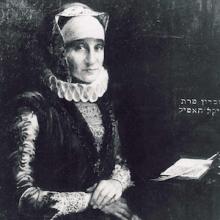Browse
Gender

Review
Tasveer Ghar (A House of Pictures)
This database would be most useful for instructors teaching modern South Asia and for students in college-level seminars.
Review
Res Obscura
Functioning primarily as the personal blog of historian Benjamin Breen, Res Obscura stays true to its by-line by being ‘a catalogue of obscure things’.
Review
Iceland Saga Map
Ultimately, the purpose of this map is to encourage and aid new readings of the sagas.
Teaching
Syllabus: Women and Gender in World History, 600-2000
The syllabus below lays out a 15-week course, beginning in the 6th century and continuing through the 20th century. It provides suggestions for how to use units and their various parts with your students, as some of the materials are student-facing, and others are instructor-facing.

Review
Freedom Narratives
Altogether, this free online website is an important resource for students and teachers who desire to understand biographical accounts and experiences of people from West Africa who fought to regain their freedom.
Review
Edsitement
The site contains over 500 lesson plans in a variety of humanities related subjects including history, literature, and art.
Source
A Hindu Princess Committing Sati against the Wishes of Emperor Akbar
This 18th century painting by Mohammad Rizā Naw'ī depicts Sati, the practice whereby an elite Hindu widow would commit suicide through self-immolation upon the death of her husband.

Review
Afro-Louisiana History and Genealogy, 1718-1820
The Slave Database offers information on more than 100,000 slaves and the Free Database has records on more than 4,000 slave manumissions.
Review
Africa Online Digital Library
The site’s stated goal is the implementation of emerging best practices in the “American digital library community” in an African context, and it does not disappoint. Indeed, the site demonstrates a rare combination of scholarly sophistication, ease of use, and broad appeal.
Source
Pieter Cnoll, Batavian Senior Merchant
Painted by Jacob Coeman in 1665, this painting depicts Pieter Cnoll, his Eurasian wife Cornelia van Nijenrode, their two daughters, and two enslaved servants.